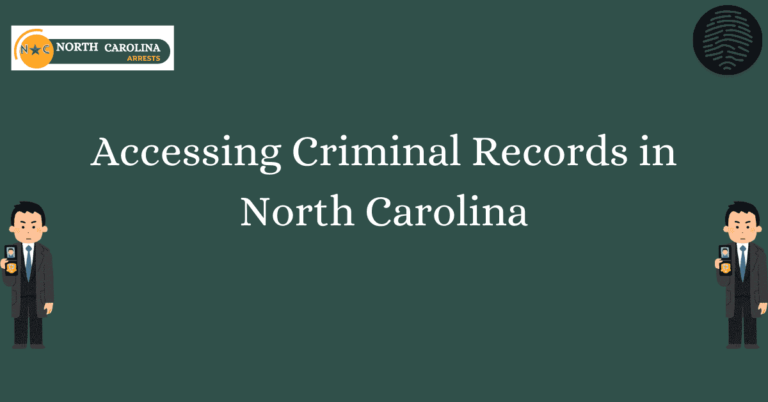Search and Seizure Laws in North Carolina
Search and seizure laws in North Carolina play a crucial role in maintaining the balance between individual rights and law enforcement activities. These laws outline the procedures and limitations under which authorities can conduct searches and seize evidence in criminal investigations. Understanding these laws is essential for both civilians and law enforcement officials to ensure compliance and protection of constitutional rights.
In North Carolina, search and seizure laws are based on the Fourth Amendment of the United States Constitution, which protects individuals from unreasonable searches and seizures by the government. These laws dictate the requirements for obtaining search warrants, the scope of permissible searches, and the admissibility of seized evidence in court. By familiarizing oneself with these laws, individuals can better navigate interactions with law enforcement and protect their constitutional rights in various legal situations.
Overview of Search and Seizure Laws in North Carolina
Search and seizure laws in North Carolina are designed to protect the rights of individuals from unreasonable searches and seizures by law enforcement. Understanding these laws is crucial for both civilians and law enforcement officers to ensure that constitutional rights are upheld.
Importance of Understanding Search and Seizure Laws
Search and seizure laws play a vital role in safeguarding individual privacy and preventing unlawful intrusion by authorities. By knowing their rights under these laws, individuals can protect themselves from potential abuse of power and ensure fair treatment in legal proceedings.
Fourth Amendment and Its Impact on North Carolina Laws
The Fourth Amendment of the United States Constitution prohibits unreasonable searches and seizures and requires warrants to be supported by probable cause. In North Carolina, these principles are enshrined in state laws that dictate the procedures for obtaining search warrants and conducting searches.
Requirements for Obtaining Search Warrants
In North Carolina, law enforcement officers must demonstrate probable cause to a judge in order to obtain a search warrant. This means that they must provide sufficient evidence to support the belief that a search will uncover evidence of a crime. Search warrants specify the location to be searched and the items to be seized.
Scope of Permissible Searches in North Carolina
North Carolina laws outline the permissible scope of searches that law enforcement officers can conduct. Searches must be conducted in accordance with the terms of the warrant and must not exceed the scope of the authorized search. Any evidence obtained outside the scope of the warrant may be deemed inadmissible in court.
Admissibility of Seized Evidence in Court
The admissibility of evidence obtained through searches and seizures is a critical aspect of criminal proceedings. In North Carolina, evidence that is obtained unlawfully or in violation of search and seizure laws may be deemed inadmissible in court. Understanding the rules of evidence is essential for both prosecutors and defence attorneys.
Interactions with Law Enforcement: Knowing Your Rights
When interacting with law enforcement officers in North Carolina, individuals should be aware of their rights regarding searches and seizures. It is important to know when consent is required for a search, when a warrant is needed, and how to assert your rights if they are being violated.
Protecting Constitutional Rights in Legal Situations
Protecting constitutional rights in legal situations involving search and seizure requires a thorough understanding of the law and the ability to assert one’s rights effectively. By staying informed and seeking legal counsel when necessary, individuals can ensure that their rights are upheld in all interactions with law enforcement.
Frequently Asked Questions
Our Frequently Asked Questions section aims to provide detailed information on Search and Seizure Laws in North Carolina, addressing common queries and concerns.
What are Search and Seizure Laws in North Carolina?
Search and Seizure Laws in North Carolina refer to the legal guidelines that dictate when law enforcement officers can search individuals, their property, or belongings, and seize any evidence found during the search. These laws are designed to protect individuals’ rights while allowing law enforcement to uphold public safety and enforce the law.
When can law enforcement conduct a search in North Carolina?
In North Carolina, law enforcement officers can conduct a search if they have a valid search warrant issued by a judge based on probable cause. They can also perform a search without a warrant if there are exigent circumstances, consent from the individual, or if the evidence is in plain view.
What is probable cause in relation to Search and Seizure Laws?
Probable cause is a legal standard that requires law enforcement officers to have a reasonable belief that a crime has been committed, is being committed, or will be committed, before conducting a search or seizure. It is based on facts and circumstances that would lead a reasonable person to believe that a crime has occurred.
Are there any exceptions to the Search and Seizure Laws in North Carolina?
Yes, there are several exceptions to the Search and Seizure Laws in North Carolina, including searches incident to arrest, stop and frisk searches, vehicle searches, and searches at border crossings or checkpoints. These exceptions allow law enforcement officers to conduct searches under specific circumstances without a warrant.
What rights do individuals have during a search in North Carolina?
Individuals in North Carolina have the right to refuse consent to a search unless law enforcement officers have a valid search warrant or probable cause to conduct a search. They also have the right to remain silent and request legal representation during a search.
How can individuals challenge an unlawful search or seizure in North Carolina?
If individuals believe that a search or seizure conducted by law enforcement officers in North Carolina was unlawful, they can challenge it in court by filing a motion to suppress evidence. This legal process allows individuals to argue that their constitutional rights were violated during the search or seizure.







